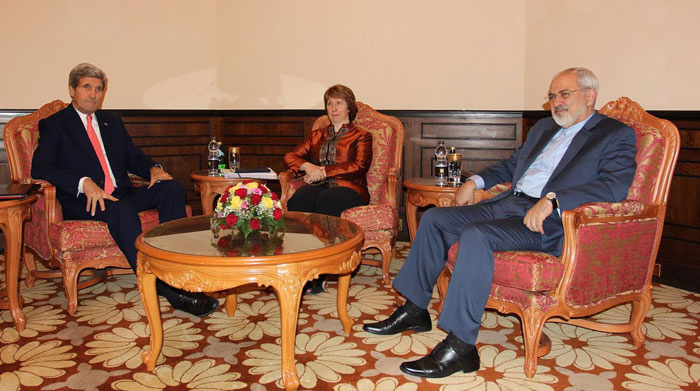Don’t waste historic chance to settle nuclear dispute

South Asia Center Nonresident Senior Fellow at the Atlantic Council Barbara Slavin said President Barack Obama was determined to settle the nuclear dispute through diplomacy.
President Obama has proved that he is determined to reach a final comprehensive nuclear agreement with Iran when he announced in a recent statement that he would veto any plan to impose new sanctions on the county, Slaniv, also a correspondent for Al-Monitor.com, a website specializing in the Middle East news, told IRNA in an exclusive interview.
She stressed that Obama would not remain the President of the United States for ever, therefore, both sides should try to have more cooperation and interaction to use existing opportunities to settle the nuclear issue.
Slavin added that the US President has firmly decided to resist against all pressures exerted on him by the Republican-dominated Congress.
President Obama warned US lawmakers on January 16 (Friday) not to trigger new sanctions against Iran over its nuclear program, saying such a move would upset diplomatic talks and increase the likelihood of a military conflict with Tehran.
He told Democratic lawmakers he would veto any bill calling for new sanctions on Iran.
Slavin suggested that Tehran could stop opponents of nuclear deal by reducing the number of its centrifuges and transferring its low-enriched uranium to a foreign country. Adopting such approach, Iran would not be losing anything and instead would benefit in a long period, she stressed.
Republican and Democratic lawmakers are moving forward with a new sanctions bill, and some expressed offense at Obama's remarks. The bill is revised by Mark Steven Kirk, Senator from Illinois and a member of the Republican Party as well as Robert “Bob” Menendez, Senator from New Jersey and a member of the Democratic Party.
The Senate Banking Committee plans to debate and vote on the bill on Thursday.
In a joint news conference with the British Prime Minister David Cameron, the US president said on Friday that if the Congress forced further sanctions, this could lead to abortion of the nuclear talks and Iran could abandon the talks and accuse Washington of blowing up the deal and acting in bad faith.
Iranian Foreign Minister Mohammad Javad Zarif and US Secretary of State John Kerry met in Paris on Friday after holding three rounds of talks (for seven hours) in Geneva on January 14 trying to iron out disagreements over Iran's nuclear program.
The volume of Iran’s enrichment activities, the timetable for removal of sanctions and the deadline for reaching a final deal are the most basic points of differences remaining among participants in the talks.
Zarif-Kerry meeting was aimed at accelerating pace of negotiations between Iran and the 5+1.
On January 19, Zarif said a brief meeting with the US Secretary of State is likely on the sidelines of the World Economic Forum annual meeting in Davos, Switzerland.
Source: IRNA

